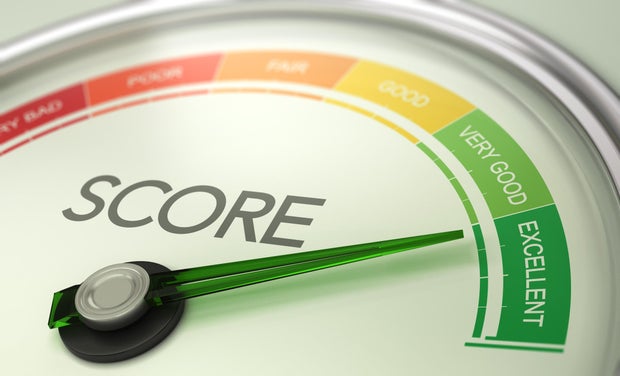Will my credit score go up if I settle a debt?
Getting rid of debt has become a lot harder for many Americans lately, and it's not just because people are borrowing more (though they are doing that, too). In today's high-rate, inflationary environment, the main issue is that interest charges are taking a big bite out of people's budgets. Credit card rates are averaging nearly 22% right now, for example, and if you're using store credit cards to finance your purchases, you could be looking at rates closer to 30%. And, if you have any credit blemishes, like a high debt-to-income ratio or a few late payments on your record, you're probably paying even higher rates than average.
When your interest rates are that high (or higher), it becomes almost impossible to make a dent in your revolving balance, especially if you're only able to pay the minimum each month. Every time you roll over a balance, hefty interest charges get tacked on to what's owed, stretching out your payoff timeline and draining your budget. Over time, it can feel like you're just treading water — or worse, sinking deeper into debt. That's why many borrowers start exploring options like debt settlement (also known as debt forgiveness) to finally get some relief.
But if you're thinking about settling a debt, you're probably wondering what it could mean for your credit score. Will it hurt it more? Could it eventually help? Below, we'll detail what you need to know about settling a debt and how it can impact your credit both in the short and long term.
See what debt relief options are available to you now.
Will my credit score go up if I settle a debt?
In the short term, settling a debt usually won't boost your credit score, and it could actually hurt it initially. When you settle a debt, it means you're paying less than what you originally owed to the creditor — often 30% to 50% less — to get rid of the debt. While this can be a smart financial move to get out from under unmanageable debt, credit scoring models typically don't view it as positively as paying the full amount as agreed.
Part of the issue is that settled accounts are usually marked as "settled" or "paid-settled" on your credit report rather than "paid in full." This distinction signals to future lenders that you didn't repay the full balance, which can make you look like a higher risk. As a result, your score may dip when the settlement first gets reported.
That said, if your account was already seriously delinquent prior to the settlement — like 90 or 120 days late — your credit score may have already taken a major hit. In those cases, settling the debt can actually be a step toward rebuilding. Over time, as the settled debt ages and you maintain good habits, like on-time payments and lower credit utilization, your score can recover.
Eventually, settling your debt can put you in a better financial position, freeing up room in your budget to stay current on other obligations, which is key to boosting your score long-term. So, while settling a debt might ding your score at first, it can help you stop the bleeding and start the healing process if you approach it strategically.
Learn how to get rid of your high-rate debt today.
What types of debt relief can improve my credit score?
If the goal for pursuing debt relief is not just to get out of debt but also to rebuild your credit, it's important to choose the right type for your situation. Some strategies are more credit-score friendly than others, including:
- Debt management: If you work with a credit counseling agency to set up a debt management plan, you could consolidate multiple debts into a single, more manageable payment, often with reduced interest rates and fees. While accounts included in a debt management plan may be closed, which can slightly lower your score initially, these types of plans don't involve settling for less than you owe. As a result, the long-term impact on your credit score is usually much more positive, especially as you make consistent on-time payments.
- Debt consolidation: If you qualify, consolidating your debt into one loan with a lower rate can be another credit-friendly option. When you take this approach, you're not settling or reducing your debt — you're just rolling it into a more affordable loan. Because you're paying creditors in full (and possibly improving your credit utilization ratio if you pay off high-balance credit cards), this method can help improve your credit score fairly quickly.
- Balance transfers: Some borrowers manage to reduce their debt by transferring their balances to a credit card with a 0% introductory APR. If used wisely and paid off during the promotional period, this strategy can help you save on interest and pay down balances faster. And, like debt consolidation, it can positively impact your score if you lower your overall credit utilization.
The bottom line
Settling a debt might not immediately boost your credit score — and it could cause a temporary dip. But in the long run, settling a debt can help you regain control over your finances, which is the first step toward improving your credit health. But if you don't want to take the temporary credit hit, there are multiple pathways toward relief, and many of them can also help you improve or maintain your credit along the way. Whether you pursue debt consolidation, a debt management plan, debt settlement or another route, though, the most important thing is to make a plan — and stick with it.






